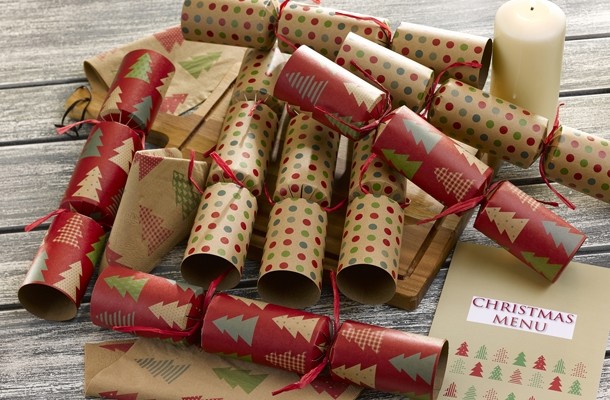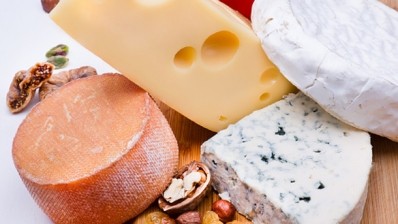Planning for Christmas 2014: Cutting costs and a sustainable Christmas

Christmas brings with it an increased trade that operators can look forward to, with the number of events, parties and meals out skyrocketing during the festive season. However many will also see their out-goings rise with extra food costs, as well as hiked up heating and electricity bills.
There are, however, a number of ways that operators can look to save some money during the Christmas season, many of which can be achieved through sustainable means. BigHospitality has been gathering some expert advice on ways in which operators can tackle their outflow while at the same time being responsible and environmentally friendly.
Cutting costs sustainably
“There are lots of ways restaurants can incorporate sustainability into their Christmas planning,” explains account manager at the Sustainable Restaurant Association (SRA) Barney Smyth. “Waste management in particular is one area where there are key opportunities for restaurants to save money, and another is through staff training.”
Some of the SRA’s top tips for cutting costs through sustainable means include:
- Doing some staff refresher training
“Christmas is a great time to re-engage all the staff,” says Smyth. “When having a huddle and discussing the plan for the run up for Christmas, use it as a prime time for some refresher training on how staff can be more sustainable with resources within the building. This includes things like turning off lights and taps when they are not required to be on, only using the dish washer when it’s completely full, and making sure thermostats are set to optimum levels.”
- Creating set menus
“Having a set menu can stop customers from over-ordering at a time when everyone’s eyes are bigger than their stomachs,” explains Smyth. “And of course it gives financial benefits as well, reducing purchasing costs because of prior planning, and it also means the restaurant will have less waste, which saves money.”
- Using leftover inventory and ingredients
“Chefs can use these wisely to create new dishes and daily specials,” says Smyth. “This cuts down on waste, which means they’ll be charged less from waste contractors at an expensive time of year.”
Tackling food waste
Although tackling food waste can be difficult at a time when customers are likely to over indulge, and typically over order, there are a number of ways that chefs can work to minimise waste and save money during the festive period.
“There are the basics, which include organising yourself, forecasting your covers, and trying to give the correct, maximised portions,” explains the Landmark London’s executive chef Gary Klaner. “You can steer the menu you write so you are utilising all the cuts of meat etc.”
“When the Christmas season comes chances of wastage increase, so keep a cool head and make sure you have a great relationship in place with both the banqueting team and the kitchen. Being able to have good, open channels of communication between those two will help reduce overall waste from the service.”
Klaner also believes that to avoid waste it is important to build in dishes for special diets and potential allergies.
“We find allergy and diet requests go up and broaden in the festive season so it’s important to plan for alternative dishes and acknowledge there will be changes to the menu,” he says. “Get an idea of any special diets or allergies when catering for an event well in advance of ordering for the event. That way you reduce the chance of over ordering or wasting food.”
Choosing suppliers
Many larger suppliers have taken heed of operators’ needs to avoid wastage, with a lot of products now being orderable in single servings, or as smaller portions.
“What we try to do is give different portion sizes and also pre-prepared options to reduce wastage as much as possible,” says Bidvest’s campaign and activation manager Gail Bridgeman. “For example, with our soups we actually have them frozen in individual pouches, so they’re a single serving. So if you have a party with ten people and only one of them wants soup, you won’t have to have any wastage.”
The SRA explains that cost benefits and sustainability also come into practice when buying from smaller, local suppliers.
“It’s really important to get to know suppliers and visit the farms and have detailed conversations about products to know exactly what you’re purchasing,” says Smyth. “If you are sourcing welfare meat products it tends to be a little more expensive in the short run, but there are key benefits that come with it. Higher quality meat purchased locally means shorter supplier chains, and it can increase the long term value of the business.”
Staying energy efficient
Heating and energy bills are another high cost factor during the festive season, when venues have to be kept warm in the cold weather and decorations such as fairy lights can add to the electricity bill. However there are ways to combat these issues.
“There are obvious points such as taking time into account to save energy,” says Klaner. “We slow cook our turkey, this uses less energy. Induction cooking also uses less energy but that really comes down to what you have in your kitchen.
“Most importantly we just use common sense and try to maximise the space we have. Turn heaters down or turn them off in quieter service periods, and multitask to maximise the space you have in busier periods. Getting the right balance should save energy.”






















